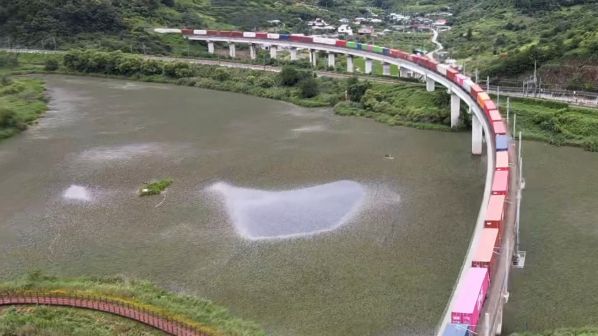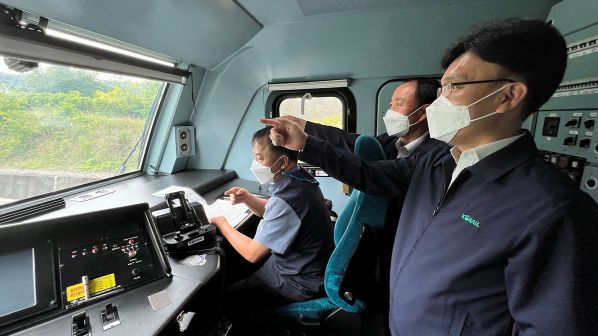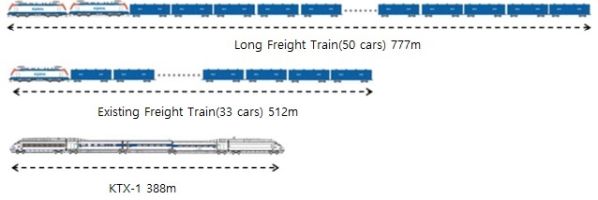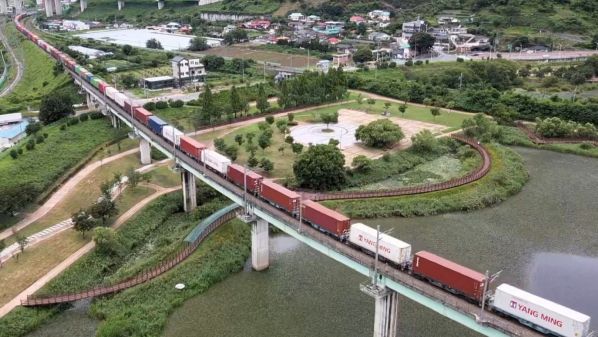KOREAN operator Korail has successfully completed a commercial test of a 777m-long freight train, as the rail company looks to overcome an annual Won 200bn ($US 153.6m) operating deficit in its freight business that has persisted since the Covid-19 pandemic.
The 50-wagon train ran for 402.3km on the Gyeongbu main line from Seoul to Busan on July 19, the first step towards the company’s goal to operate 64-wagon trains. The train departed at 05.00 and arrived at 11.00. Korail currently operates 512m-long freight trains with 33 wagons.
Korail says it is aiming to create a continuous revenue generating model by operating longer freight trains that will be less susceptible to critical situations such as the pandemic.

The train was hauled by two electric locomotives, and carried containers loaded with high value-added freight for export such as electronic goods and automobile parts to simulate regular commercial operation.
Due to its small geographical size and the lack of international rail connections, Korail operates freight trains over an average distance of only 257km. Research undertaken by the China Academy of Railway Sciences (CARS) found that rail is most competitive with road transport over distances of more than 700km, which is also confirmed in research by Japanese operator JR Freight. Korail says it had previously been passive in developing long-distance freight services. The country’s railways and freight depots, first built by Japan in the early 1900s, were also not designed for longer trains.

However, Korail president, Mr Na Hee-seung, launched a new strategy after being appointed in November 2021, which targets improving Korail’s business environment and overcoming losses in the freight business. This includes the plan to introduce longer freight trains by cooperating with experts in various fields to solve the associated technical problems.

“The long-distance freight train is a management innovation that can dramatically improve the chronic deficit structure of railway logistics,” Na says. “To this end, we will actively pursue management innovation and fundamental financial structure improvement through the creation of new revenue models by applying smart rail mobility technologies such as wireless control systems.”
Na has also previously advocated reconnecting to the railway to North Korea, which would further increase the viability of longer freight trains.
Korail plans to launch longer freight trains in regular commercial operation in the first half of 2023.

